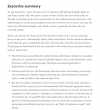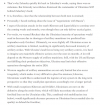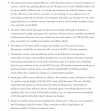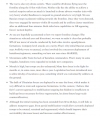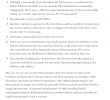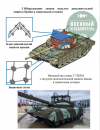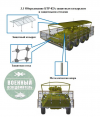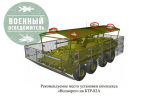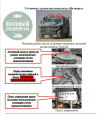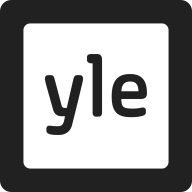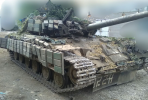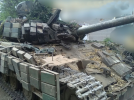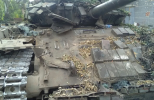I imagine this may go unnoticed outside Poland, so I`d like to give heads up to all of you interested in the rather never officially undisclosed/confirmed circumstances around the beginning of the full scale Russian invasion of Ukraine from Polish perspective (mainly).
Just recently a book came out titled "Polska na wojnie" (eng. Poland at war) which is a mash up of interviews that the author (journalist Zbigniew Parafianowicz) made with several high ranking members of Polish government and presidential office, as well as army/special service officers, with some additional comments from their Ukrainian counterparts. They all remain anonymous, from obvious reasons, but the story checks out with what we`ve learned in the past.
Anyway, it surely made a splash here (Poland), because it's full of spicy details (for a Polish and possibly Ukrainian readers) but there are some, that may be interesting for everybody else.
The talk is about the onset of coming war and the following months and gives some very interesting insight into the backstage, and especially - Polish-Ukrainian relations and cooperation. Below a couple of quotes from the book as reference (throw it into google translator), but I`ll give you some of the interesting snippets:
1. Polish government was seriously concerned that Lukashenka will join the war, and was preparing a scenario in which anti-regime diversion groups would be sent to the Belarussian army rear to wreck havoc. In the end, Lukashenka was so afraid himself, that through various channels made inquires to Warsaw, if they`d let him pass the border and then to fly away from the closest airport. He knew if things went south for him, Russians would not let him lift into his own airspace.
2. Polish special forces were securing Ukrainian delegates that were attending negotiations in Belarus (March 2022). They were escorting them in helicopters that landed on Belarusian soil and took them out when they were done. Also, by a coincidence (they were training Ukrainian specials), Polish commando forces were present at the facility in Brovary (Kiyv suburbs), when the war erupted. They stayed on longer, gathering intel. A British unit is also reported of doing the same.
3. Despite Russian propaganda, while Poland never even thought about using the opportunity to reclaim Lviv (Lwów), it remained a concern for Ukrainians. Warsaw told their partners - we will be with you till the end, as long as you keep on fighting. Together with the unconditional help that was immediately provided on many levels, it convinced Ukrainians about the sincerity of Polish intentions. As a side note: Dmytro Kuleba with his whole family (and dog) was received by his Polish counterpart - Zbigniew Rau at his private home, where they could wait out the critical time period. Similar proposals were made to Ukrainian Danilov and Sybiha.
4. On the 25th of March brand new Polish Boeing 737-800 NG had an emergency landing while on the way to Jasionka (Rzeszów) to a meeting with president Biden. President Duda and gen. Andrzejczak were on board. The cause of near-death experience (how passengers described it) was a faulty trimmer which malfunctioned forcing the pilots to fight with the steering handles. Luckily the plane landed safely and the delegation quickly changed their plane to another one, continuing the trip. Nevertheless, at the time possible sabotage or assassination attempt was one of the probable causes that were being investigated.
5. Americans were convinced that Kyiv will fall within 3 days and prepared to evacuate 40k people, presumably apart from own USA citizens, also whole Ukrainian political elite and establishment. Jake Sullivan was the most skeptical about Ukraine's chances, and argued about that with Jakub Kumoch (presidential secretary) who was convinced UA will prevail. Later on, from the same reasons US remained reluctant to provide additional help in the form of heavy equipment. Washington agreed for providing tanks after Biden-Duda meeting, which Warsaw insisted on doing asap (a batch of T-72's followed soon afterwards paving the way), but they were still sending mixed signals about transfer of fighter jets. Warsaw wanted US on board, as it need it to be an allied effort in order to shield Poland from possible Russian retaliation.
In the end, Warsaw got tired of US indecision and reluctance, and acted independently. Dismantled around 10 Polish MIG-29 fighter jets and left them in parts, in a forest belt near the border. Kyiv was notified about "ownerless" parts, which were then picked up and quickly assembled on the Ukrainian side of the border. That happened months(!) before the official transfer of jets in a larger international coalition.
**
There is more. A trip of Roman Abramovich through Poland and then to Turkey, that was supposed to be an attempt of reaching out to Russians through unofficial channels, or how Poland used specially created private companies to bypass bureaucracy when transferring military goods. It also has a significant chapter about why Polish-Ukrainian relations on the governmental level blossomed for a year, but then started to wither due to European power-politics, personal ego-trips and internal affairs in both countries. Particulary, chancellor Scholz and president Zelensky receive a bit of a whipping for their behavior.
Edit: Ah yes, I forgot the topic of rocket that fell on polish village of Przewodow, killing 2. All the gathered material (the rocket parts itself) indicate that it was indeed of Ukrainian origin. The stubborness with which Kiyv insisted it was Russia, despite no evidence was provided became one of the reasons why the relations cooled down.
But I will leave that and the rest of the book for you to find out.
-
I`ve messed up the screenshots and didn't add the one about Lviv, it's actually funny, as both sides were afraid that the other will get cold feet and press for negotiations, which at that point (March) was unacceptable. It got cleared up, in a pretty straight forward fashion

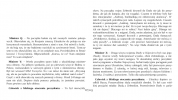
-
Elaborating on the incident at Polish Przewodów. One of the 1st serious differences in Polish and Ukrainian relations.
There was an official
Polish investigation to which Ukrainian side had full access, that established the rocket was of Ukrainian origin. Poland didn't demand compensation for families of 2 civilians killed by the explosion, although due to Kyiv attitude it was considered, and in the end just tried to tone down the emotions for the sake of greater cause.
Yet, president Zelensky insisted on Russian responsibility and called for NATO article 4 implementation while failing to provide any evidence. Polands stance was backed by the US and other alliance members and was unwilling to be pulled into direct war on questionable basis.
Quotes (see below) from the book state, that while Polish authorities understood why Ukraine tries to pull them into the war (a country fighting for its survival), they couldn't grasp the ongoing stubborness of president Zelensky. Which antagonized president Duda and the cabinet. From Ukrainian point of view, it was perceived as a sign of Warsaw's weakness under US gaslighting.
Interestingly,
gen. Zaluzhny supposedly acted differently, and called his Polish counterpart gen. Andrzejczak to apologize for the incident. But that gesture was kept on the military level, and never made it to political relations.
Btw. this book has a significant part about why the relations deteriorated further, leading in the end to the conflict about grain export, Zelensky's disastrous speech at the UN, and then similarly fatal PM Morawiecki's comment (which in addition was untrue) about Poland suspending arms export to Ukraine. In my opinion, author successfully balances the responsibility between both sides, remaining critical where it's due. It's not a hagiography, rather recollection of accounts of people involved in the events, with critical comment.
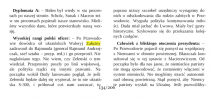
-
Since you keep asking me in the comments about MiG-29's jets, I will add a couple of quotes to give you a better understanding about this particular event.
In the beginning of March, Ukraine was in dire need of additional fighter jets. Poland was willing to provide them, but there was a catch.
At that time Russia officially warned against using Western airbases by Ukrainian aviation, threatening that it "may be regarded as the involvement of these states in an armed conflict."
Therefore, if planes were to be flown from Poland directly to Ukraine, in best case scenario they could be targeted by the enemy, in worst case - retaliation could struck Polish air bases.
Fully aware of that risk, Warsaw tried to convince US to put its weight behind the idea and therefore insure it against what ever Russia comes up with. But Washington was reluctant, sending mixed messages depending who have been asked. US didn't want to back Poland in this act, neither did it send additional air cover of Polish air bases. There was no clear answer and the time was running.
More over, Washington told Zelensky that's it's Poland that is holding up the transfer of planes, which made Ukrainian president call president Duda asking - WTF? Unwilling to take the blame, Poland decided to force US hand, openly proposing that jets will fly over to Germany's Ramstein air base, where they will be abandoned. Polish pilots will go back home by bus or train and Warsaw won't care who picks them up and where they are going to fly. If Polish air bases could risk taking the Russian heat, why not German/American Ramstein?
That got Washington angry. Book quotes one of the ministers saying that Americans called asking
"what kind of game are you playing with us?" to what they got bounced back with
"how about you?". Blinked said to the press that "there are difficulties" with this idea adding that each country can provide whatever help it wants. But that was Blinken, while NSA (en ole varma, mitä tällä tarkoitetaan: tuskin tarkoitetaan tiedusteluviranomainen NSA vaan lienee lyhennetty esim. national secutiry advicer) was staunchly against. Hardly a unified and strong message for Russia.
Therefore, Warsaw decided to look for a way to directly transfer the planes without giving Kremlin any reasonable anchor for reaction.
One of the Polish ministers (Jakub Kumoch) from presidential office called his Ukrainian counterparts, and because he was respected and also on a very friendly level, asked them jokingly if they knew that in Polish language the name 'Ukraina' derives from 'ukraść', a Polish word for stealing? And if they still remember how to run a scheme. Nobody got offended (at least author doesn't mention that), and the message was clear. Later on, Ukraine was notified of certain parts being left on a specific location near the border. Completely unattended.
Next day parts were gone. Americans supposedly asked if Ukrainians managed to assemble them back into one piece, and if so, then where? The reply was
"Yes, in the forest". In fact, Ukrainians were doing exactly that in the beginning of war, operating from field airstrips in forested areas. Changing location after each 24 hours. With their skills, assembling a plane they were perfectly familiar with did not present any challenge.
While exact date was not provided, it seems that this whole operation was carried out around March/April 2022.
---
My private side note (book doesn't mention any of that):
It's a common knowledge among Polish domestic military experts, that Poland provided Ukraine with immensely more than what was officially reported thus seriously degrading it's own military capabilities.
Details? We don't know all the numbers, but the talk is about as much as (!) ~350 T-72/PT-91 tanks, ~300 BMP-1, 72 Krab SPH, ~126 2S1 SPH, ~60 Grad MLRS, two dozens of S-125 and S-200 AD systems, and a lot of other stuff. Much of it came straight from Polish field units. This is probably one of the main reasons to why it's being kept as a secret, and also an explanation to why Poland went on a buying spree kicking the spending to 4% of its GDP.






